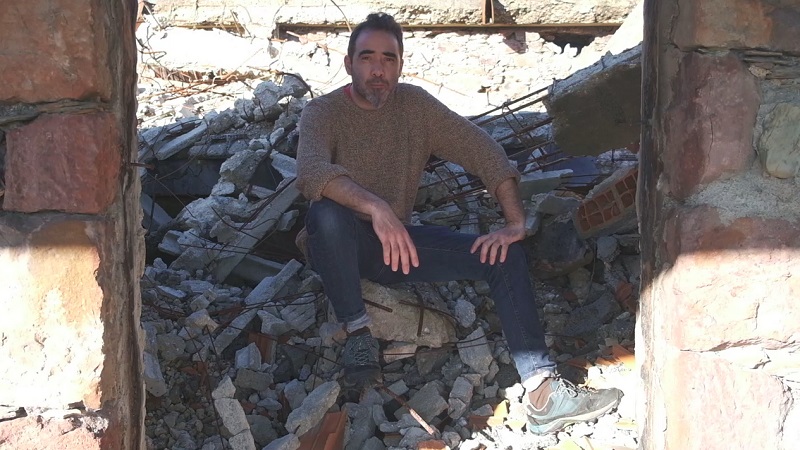The wildfires which have engulfed parts of Europe this summer have not spared Portugal. As temperatures soared, blazes in the Alentejo and Algarve last month forced more than 1,400 people to evacuate.
I know from bitter experience the impact of the lethal fires which are becoming an increasing feature of Europe’s hotter, drier summers.
In October 2017, in the midst of a record-breaking drought, wildfires swept across Portugal for the second time in a few months.
When they reached the small village in central Portugal where I live, it was like being hit by a hurricane.
As fire advanced, I tried to save the home I shared with my partner, but I was unable to breathe and had to run away. Our home was burnt to a husk and our most treasured possessions reduced to ashes.
We lost our home – but 120 people lost their lives in Portugal that year to fires which ripped through half a million hectares of land, or about 5 per cent of the national territory.
The trauma – which is still triggered by the sound of an ambulance or fire engine – is intensified by how the state has largely abandoned many of the fires’ victims, including my own family.
What’s more, the eucalyptus plantations which played a key role in helping the fires spread still surround my village, having been replanted in the wake of the devastation.
Giant matchsticks
Portugal has the largest area of eucalyptus plantations of any country in the world proportionate to its size, with single species eucalyptus plantations stretching across a quarter of our ‘forested’ land.
The country is Europe’s biggest eucalyptus pulp producer, and these plantations provide the raw material for our country’s powerful pulp and paper industry, whose exports account for 1.5 per cent of Portugal’s GDP.

A eucalyptus plantation (right) sits beside natural forest (left) in Indonesia (Photo credit: Greenpeace/Daniel Beltra)
Industry is wedded to eucalyptus because it grows fast, has a high yield and is easy to harvest. It also demands vast supplies of ground water and soil minerals and burns like tinder.
Both the leaves and bark are flammable, due to the presence of highly combustible eucalyptus oil, and the bark flies off when burned, sparking new fires up to three kilometres away, creating secondary fire fronts.
It is beyond dispute that the speed and intensity of Portugal’s deadly 2017 blazes was hastened by the swathes of green eucalyptus trees which dominate the landscape of much of rural Portugal, like giant matchsticks in an oven.
Developing countries call for $100 billion loss and damage target
In the wake of the 2017 fires, the Portuguese government published a regulation to control the spread of monoculture eucalyptus plantations.
Yet today the plantations risk being extended despite widespread public disapproval. Incredibly, this is being done in the name of sustainability.
Green deserts
The world is waking up to the dangers that plastic packaging poses to human health and the environment, and momentum for a world without plastic pollution is growing
Portugal’s packaging and paper industry, which is a vast carbon dioxide emitter, is championing paper packaging as a sustainable alternative.
The pulp and paper Navigator company, which in 2022 had a turnover of €2.4 billion ($2.6 billion), recently defended increasing the area for eucalyptus plantations on precisely this basis.
In July, its CEO said the company is contributing to “deplasticisation”, claiming that it will produce 100 million packages a year to replace plastic packaging in the food service and food packaging market.
Three billion trees are cut down every year around the world to feed the packaging industry’s increasingly voracious demands.
Looking for quick fixes, the industry is investing millions in intensive lobbying efforts to make the public believe paper packaging is better than plastic packaging and avoid questioning their business models. But there is a chance to arrest this trend.
The EU is currently revising its Packaging and Packaging Waste Regulation.
This autumn, the European Parliament must vote to adopt strong measures to dramatically reduce single-use packaging and shift to reuse systems that reduce the impact of packaging on the natural environment and communities for the long-term.
The definition of insanity, according to the famous quote wrongly attributed to Einstein, is to repeatedly do the same thing but expect a different result.
To continue filling Portugal’s landscapes with green deserts of dangerous monoculture eucalyptus plantations during the climate crisis and not expect more catastrophic forest fires, fits this definition precisely.
Fernando Amaral is an environmental campaigner, social anthropologist and documentarist.
